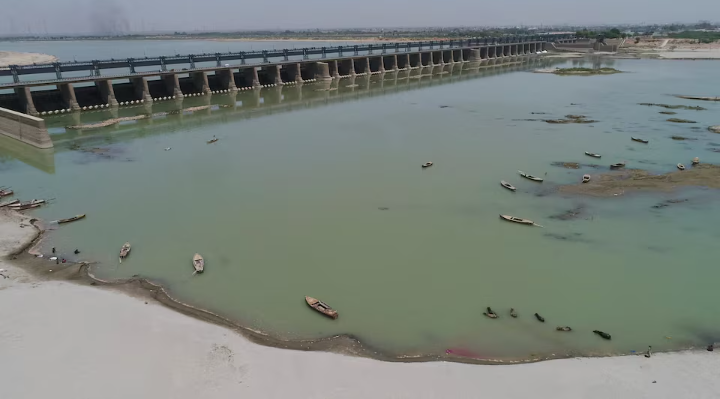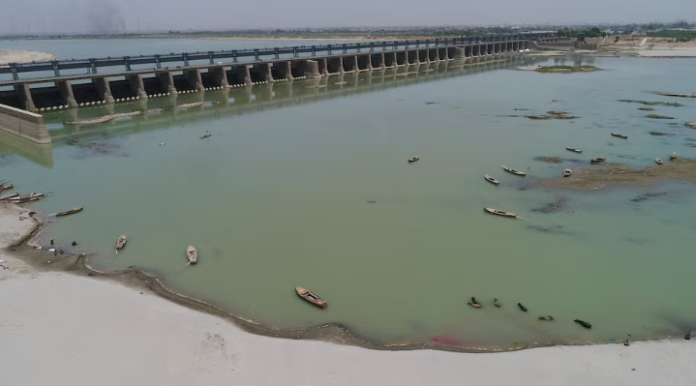In the intense heat of Latifabad, just steps away from the dwindling Indus River, farmer Homla Thakhur battles to keep his crops alive. As he sprays pesticides over his drying vegetables, his worry deepens. India has vowed to restrict water supplies flowing into Pakistan after a deadly militant attack in Kashmir — a move that could devastate millions.
“If they stop the water, this entire region will become the Thar Desert,” Thakhur, 40, warned. “We will die of hunger.” His small farm, covering about five acres in Sindh province, relies heavily on the Indus River, which journeys from Tibet through India before reaching Pakistan and emptying into the Arabian Sea.
For Thakhur and over 15 other farmers interviewed, the threat feels existential, especially after years of poor rainfall. Their fears intensified when India announced the suspension of the Indus Waters Treaty of 1960 — an agreement mediated by the World Bank that guarantees Pakistan access to critical water resources. India claims the move will stand until Pakistan takes irreversible steps against cross-border terrorism, citing the alleged involvement of Pakistani militants in the Kashmir attack that killed 26 people. Islamabad firmly denies any role, warning that any attempt to block water would be viewed as “an act of war.”
While India cannot immediately stop the water — since the treaty only allowed limited control like building run-of-the-river hydroelectric plants — experts caution that changes are coming fast. India’s Water Resources Minister, Chandrakant Raghunath Paatil, boldly declared, “We will ensure no drop of the Indus River’s water reaches Pakistan,” fueling tensions further.
Sources inside the Indian government revealed that within months, India could start diverting river water through canals for its own farmers while pursuing major dam projects expected to take years. Immediate steps include cutting off data sharing on river flows, stopping flood warnings, and halting annual Indus Commission meetings — leaving Pakistan blind to vital water information.
“This lack of data will cripple Pakistan’s planning,” said Kushvinder Vohra, a former chief of India’s Central Water Commission and ex-Indus Commissioner. Without real-time flow updates, Pakistan will struggle to manage agriculture, electricity generation, and urban needs.
Economists warn the consequences could be severe. Vaqar Ahmed, a leading economist with Oxford Policy Management, emphasized that Pakistan must act quickly to fix inefficiencies in its water management systems, noting that the current infrastructure cannot withstand such a shock.

Meanwhile, long-standing disputes between India and Pakistan over hydroelectric projects like Kishenganga and Ratle have escalated. Indian officials argue that changes in population and the need for cleaner energy justify renegotiating the decades-old treaty.
For farmers like Nadeem Shah, who cultivates 150 acres in Sindh, the stakes are even higher. “We’re worried about food and drinking water,” he said. Across Pakistan, the three rivers governed by the treaty irrigate more than 16 million hectares — around 80% of all farmland — and sustain millions of lives.
“This uncertainty injects chaos into a system that was never built to handle unpredictability,” said Ghasharib Shaokat of Pakistan Agriculture Research.
Politicians, too, are sounding alarms. Bilawal Bhutto Zardari, Pakistan’s former foreign minister, warned, “By abandoning the Indus Waters Treaty, we are condemning future generations to a new era of conflict.”
With nuclear-armed neighbors on edge, the world watches anxiously as a vital source of life becomes the latest battlefield.



